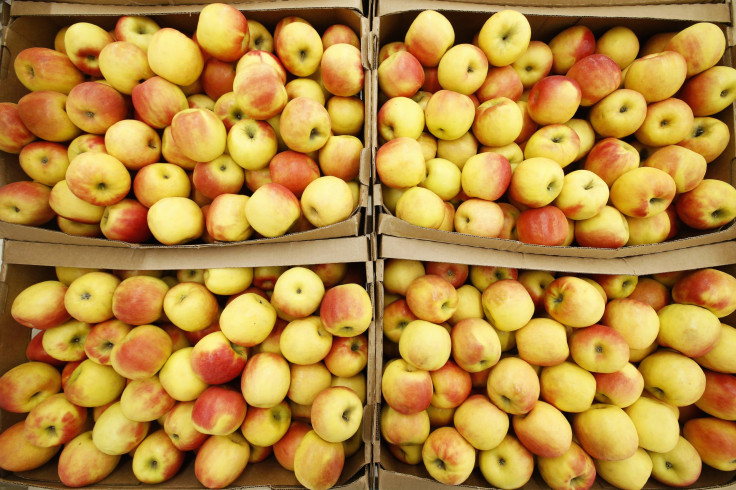US Approves Cultivation, Sale Of Genetically Modified Apples

The U.S. government on Friday granted approval to the cultivation and sale of the first genetically modified apple, according to media reports. The apples, engineered to resist browning, were developed by the Canadian company Okanagan Specialty Fruits Inc.
In a statement released Friday, the U.S. Department of Agriculture (USDA) said that the so-called Arctic apples are “unlikely to pose a plant pest risk to agriculture” and that deregulation is not likely to have a “significant impact on the human environment.”
“The commercial approval of Arctic apples, our company’s flagship product, is the biggest milestone yet for us, and we can’t wait until they’re available for consumers,” Neal Carter, Okanagan's president and founder, said in a statement. However, consumers will have to wait until 2017 as most of the initial batches of the fruit would be consumed during product development trials and test-market research, he said.
While the apples, which are genetically altered to suppress the production of an enzyme that causes browning when they are sliced or injured, are believed to be safe for consumption, farmers are worried that the product might scare off customers averse to genetically engineered food, according to media reports.
“I’m very disappointed in the USDA … They’re approving this in light of such overwhelming concern and disapproval over (genetically modified) products,” Jim Baird, an apple farmer in Washington state, told The Wall Street Journal.
Although genetically modified crops have been cultivated in the U.S. since 1990s, a recent survey by the Pew Research Center found that only 37 percent of Americans believe that such foods are safe for consumption. In contrast, 88 percent of scientists said that genetically altered foods are generally safe to eat.
However, Carter claimed that the apple has “a lot of silent supporters,” according to a report by The New York Times. "I can’t believe how many requests we’ve had just this morning to our website from people who want to buy trees."
© Copyright IBTimes 2024. All rights reserved.












